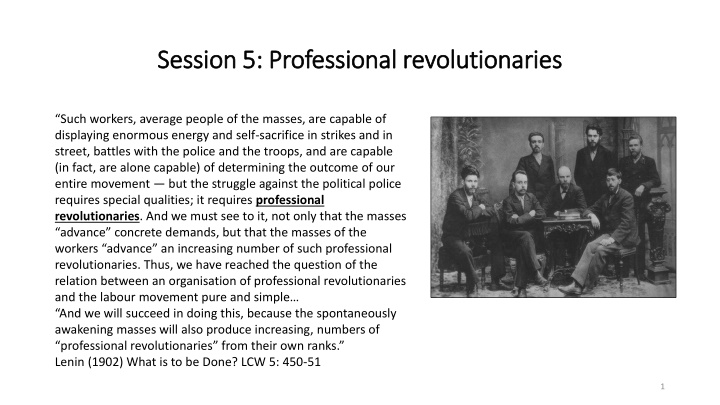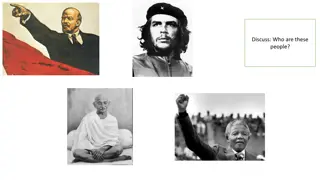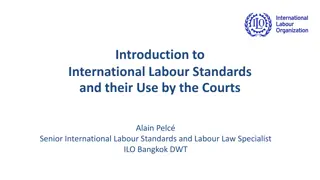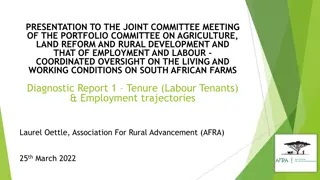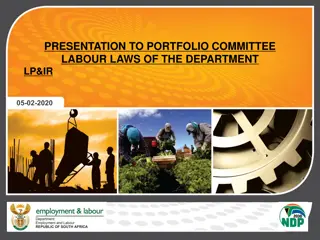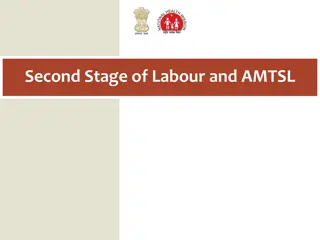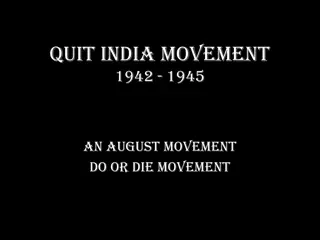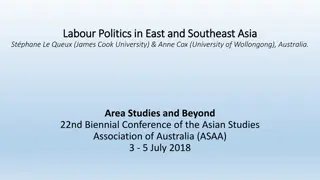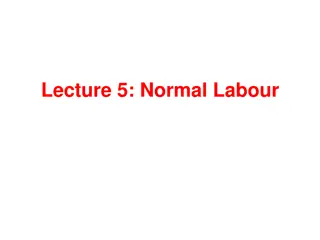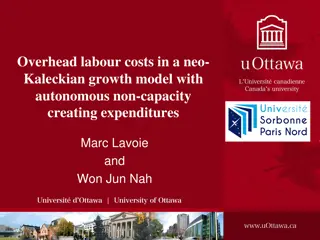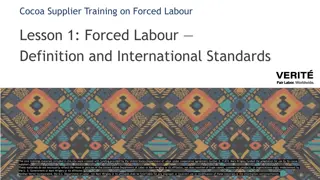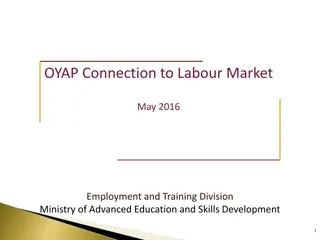Professional Revolutionaries and the Labour Movement
The necessity of professional revolutionaries in advancing the political movement is emphasized by Lenin, highlighting the importance of their specialized qualities in combating political police. The relationship between professional revolutionaries and the labor movement is explored to ensure the progress of the masses. The distinction between amateurs and professionals in revolutionary activities is discussed, underlining the significance of expertise and strategic planning in revolutionary work.
Download Presentation

Please find below an Image/Link to download the presentation.
The content on the website is provided AS IS for your information and personal use only. It may not be sold, licensed, or shared on other websites without obtaining consent from the author.If you encounter any issues during the download, it is possible that the publisher has removed the file from their server.
You are allowed to download the files provided on this website for personal or commercial use, subject to the condition that they are used lawfully. All files are the property of their respective owners.
The content on the website is provided AS IS for your information and personal use only. It may not be sold, licensed, or shared on other websites without obtaining consent from the author.
E N D
Presentation Transcript
Session 5: Professional revolutionaries Session 5: Professional revolutionaries Such workers, average people of the masses, are capable of displaying enormous energy and self-sacrifice in strikes and in street, battles with the police and the troops, and are capable (in fact, are alone capable) of determining the outcome of our entire movement but the struggle against the political police requires special qualities; it requires professional revolutionaries. And we must see to it, not only that the masses advance concrete demands, but that the masses of the workers advance an increasing number of such professional revolutionaries. Thus, we have reached the question of the relation between an organisation of professional revolutionaries and the labour movement pure and simple And we will succeed in doing this, because the spontaneously awakening masses will also produce increasing, numbers of professional revolutionaries from their own ranks. Lenin (1902) What is to be Done? LCW 5: 450-51 1
Amateur Amateur Our worst sin with regard to organisation consists in the fact that by our primitiveness we have lowered the prestige of revolutionaries in Russia. A person who is flabby and shaky on questions of theory, who has a narrow outlook, who pleads the spontaneity of the masses as an excuse for his own sluggishness, who resembles a trade union secretary more than a spokesman of the people, who is unable to conceive of a broad and bold plan that would command the respect even of opponents, and who is inexperienced and clumsy in his own professional art the art of combating the political police such a man is not a revolutionary, but a wretched amateur! Lenin (1902) What is to be Done? LCW 5: 466 2
Vertrauenspersonen or p professional union officials rofessional union officials Lenin seems to have acquired the language of professionalism from Sidney and Beatrice Webb's Industrial Democracy (1897). Lenin and Krupskaia translated the original into Russian In the early trade union movement, the local union was a primitive democracy . As the division of labour increased, there emerged the professional civil servant At its 1871 Dresden congress, the SDAP established the institution of the Vertrauensmann( trusted person ) During the ban on the SPD, the Vertrauensm nner smuggled packets of Der Sozialdemokrat newspaper into the country The 1894 party congress created a Vertrauenspersonen system as the basis of women s representation. Clara Zetkin and Ottilie Baader organised the first women s Vertrauenspersonen conference in 1900. The Webbs recognised that professionalisation of trade union also created problems To balance the professional civil servant we have... the professional representative. The latter has become a professional expert in ascertaining and representing the desires of his constituents . Gary Steenson, Not One Man! Not One Penny! German Social Democracy, 1863-1914. 1981: 27-28, 39, 151 Robert Mayer, Lenin and the concept of the professional revolutionary, History of Political Thought, 14, 2, 1993: 253 3
revolutionary by trade revolutionary by trade Lenin s most famous coinage in WITBD is revoliutsioner po professii or professional nyi revoliutsioner. In Russian, at least when Lenin wrote, professiiameant trade , that is, a specialised branch of economic activity. By trade connotes a skill which can be learnt and is both a source of respect and pride. Those with this skill would make no distinction between those of a worker or intelligentsia background. The ultimate aim of the metaphor is to portray the revolutionary as part of the workers world, a fellow skilled labourer in the great factory of revolution . Lenin had never used revolutionary by trade previously In fact the term seems to have been a last-minute improvisation prompted by Nadezhdin Kustarichestvowas a Lenin coinage. Translators have rendered it as primitive methods , primitiveness , amateurism ... I translate kustarichestvoas artisanal limitations ... 4
Session 5: Professional revolutionaries Session 5: Professional revolutionaries Key ideas professional revolutionary amateurism demagogues conspiracy Questions 1) What failures does Lenin identify among the revolutionary socialists? 2) What does Lenin mean by a professional revolutionary ? 3) Did Lenin believe the socialist movement should be led by intellectuals? 4) Was Lenin in favour of conspiracy? 5) How does underground work limit democratic procedures? 5
Session 5: Key passages Session 5: Key passages It would be extremely naive indeed, therefore, to fear the charge that we Social-Democrats desire to create a conspiratorial organisation. Lenin (1902) What is to be Done? LCW 5: 476 A concise definition of konspiratsiiawas the fine art of not getting arrested Lenin also argues that formal democratic institutions such as elections within local organisations are dangerous because they violate konspiritsiia. Elections and other kinds of formal rules allow the police to infiltrate and to locate its leaders Lenin also used konspiritsiia considerations as an additional argument against wasting time and resources on local underground newspapers. Lih 2005: 434-36, 447-450 demagoguesare the worst enemies of the working class. Lenin (1902) What is to be Done? LCW 5: 463 6
